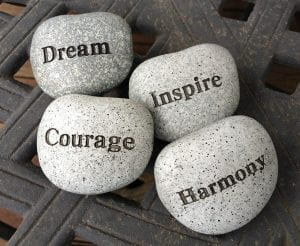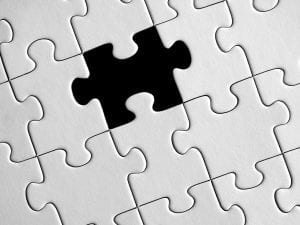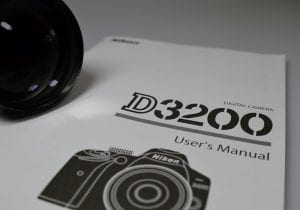Tonight’s twitter chat was looking at family stories and how to write them.

What is your ultimate goal with your writing? Does the title of your story attract readers? A subsidiary question given people are saying they write for their descendants: How do you make sure your stories will be preserved into the future?
I try to write biographies of my direct ancestors to add to my blog and also WikiTree. But when I use photos it is usually about that event or person.
inspired by you @tasteach, I started writing biographies of my ancestors recently and it is fantastic for finding all the gaps in my research 🙂
Very true. I’ve indirectly shared data with WikiTree through my #familyhistory website & WikiTree users have copied and referenced that data
I think the ultimate goal of my writing is to record my research for posterity/my descendants. I’m not sure if the title of my story attracts readers. If you mean the title of my blog – well I hope it’s memorable!
my goal when writing my family history stories ( blog posts) is to record the stories of my ancestors, show how I researched and to share the stories with others and hopefully attract cousin bait!
Yes, hoping to attract those cousins too Sharn. To that end I listed in full names and dates of particular branch of interest on my website, but nothing so far – although by trawling through Ancestry trees I’ve done better on that line
my goal is to have a family narrative story for each of my immigrant ancestor couples. It is being written in Word and then I will PDF a copy for my website.
Two goals – writing as an alternative form of research/thinking, and sharing with others
I include the surname in the category of the post, but maybe I need to use more tags to help with readers finding posts
I always feel I never give this enough attention but usually by the time I’ve finished the post I’m so exhausted I just want to get it out there and am too tired to think of a decent title.
or place names perhaps – I often search on a surname in connection with a place
my ultimate goal is to tell the stories of my families and ancestors for their descendants. I don’t really ‘have’ story titles…
My goal is to record my family stories on the blog so they are archived for the future as I have nobody to take over my research.
I write biographies for my profiles on @WikiTreer, so there is no title, just the profile name. I do it to preserve the research that I have done.
Some of mine would be several pages in length. But what is stated is backed up by sources wherever possible, even for my own profile. I add personal stories whenever I can. My father (and more to add) wikitree.com/wiki/Dickson-4…
my ultimate goal when writing anything about #familyhistory is to leave something for my descendants. I really hope they get to see what has been recorded either via Pandora or the Blog to Books I’ve prepared.
Titles are always hard but I am trying to indicate who I am writing about and where they are from. I am not necessarily trying to attract readers, more to capture all my research into a readable story.
I have not started writing anything other than short pieces on my blog I would like to start writing more about those people I knew personally
I had my first article published in the NZSG last year “Felonius, Wicked and Diabolical?” Writing it helped me clarify the story of my 4X G-Grandfather
that’s a fabulous achievement Catherine and I love the title – very engaging 🙂
I have written parts of my life story, and want to write more once I finish my current batch of profiles. I have been asked to write an article about my famous Piper MacKay ancestors. Still thinking what to do for that.
does the title matter? It does to an extent. For a published book I think it’s useful to select a unique title…check libraries and Amazon. For a presentation it is more useful to have an intriguing title, if the subject matter suits it.
I do try to use catchy titles such as “ Who Killed Great Grandpa” and “ Kitty Keefe, Salad Oil Thief”. I find good titles attract more readers.
Documenting the research process is very helpful and is a dynamic citation as well. Cousin bait is a bonus!
I’m just lucky that mine has been preserved in Pandora but if it wasn’t I guess I would think about buying a domain name et al yes?
I think the way we write family history tends to reflect our reading preferences. I rarely read fiction although I have been known to get lost in the time and place of historical fiction from time to time but generally I read for information so …my predominant motive for writing is to pull info together and document as a narrative for my own benefit and for anyone who has a research interest in what I am writing about … that is, to inform rather than to entertain
We tend to focus on looking far back rather than in our own memory range. When we leave this mortal coil, those stories will be lost if we don’t record them.
To share stories I find about my family, and also to encourage others to write about their own stories. I often try to think of good titles to intrigue/entice readers, and sometimes it works!
Alex have have begun linking my blogs to my own domain names but I’m too am grateful that they are archived by The NLA Pandora website. We are very lucky
My titles vary from the obvious e.g., ‘Thomas Coop – The Roxburgh Years’ to the less obvious ‘All for Twelve Dozen Buttons’
Question about Pandora @nlagovau – do Pandora results come up in general Google searches?
Paul has written a great post about what happens when you become a death certificate.
My goal is to have my ancestors be gone but not forgotten.
An ultimate goal would be to find relatives interested in copies of the expanded research. 1927-1966: 3/4” in a wine-coloured duotang. 1982-currently: 19 binders of varying thicknesses
To make my research interesting to others and make sure the stories are shared.
My little goal is to turn research into interesting stories that people (particularly my sibs & nibs) *want* to read on my website. My big goal is to publish historical fiction based on my research.
Andrew has created a video and included in blog post which is actually the vocals from the video

What do you think the best medium is for telling family stories to include young people? Are Instagram, video clips, or podcasts more appealing than writing? Pros and Cons?
hahaha…maybe TikTok?
actually, this worked pretty well (excuse that it’s my first attempt so not perfect)… myhr.tg/1qhdnDoc
oh I am super impressed with this Chris. You must tell me how you added the extra photos. I feel so dumb. I just used the talking head and think adding other photos makes it so much better.
I loved the idea when I saw the moving photos in Harry Potter…so really want to do more. I just wish I had the right voices.
I think I just did it in the editing phase. I already had collected them for my family history. I also tweaked the script to make it flow a little more naturally. Go back and try to edit yours to see what you can do.
that is not something I have considered. Those are mediums that I am not used to using. I would have to spend time learning and then I’m not sure I could capture all the information I want. I would hope that young people would still read about their ancestors.
Well having done some research recently I can confidently say that it needs to have video and audio – a powerpoint presentation will do but the more dynamic the better to attract/include young people.
my personal preference is writing as it suits my style and more detail can be shown. For younger people who are used to quicker grabs maybe not.
I’m a big fan of short books with lots of pictures, including social history pictures. My children have read them time, and time again.
1. Publish books through a service that adds ISBN numbers. 2. Donate them to libraries / societies around your country. 3. Make the copies available to family members for purchase. 4. Submit a digital copy to FamilySearch’s book collection. 5. Submit a digital copy to the Internet Archive.
it really depends on how young. Our GenZers are vocally social; so make it like a phone message. Older? A series of old letters in IG, an informative blog post, a call out on FB to identify old photos. Younger? A photo collage turned into a puzzle.
re privacy. I’m currently writing about my relative & his involvement in the death of another man. I’ve decided there’s no need to go into the details or name the deceased, in case his descendants see it.
There’s a lot to be said about oral history and telling younger people stories. These can range from bedtime stories based on fact to discussions around the kitchen table. Ideally with a print copy for future memory keeping.
Like people of any age group, won’t young people have a variety of preferences? Many young genies blog and clearly enjoy writing, while others also host podcasts/YouTube videos
TikTok or Instagram are probably more suitable for younger people to engage with family stories. Not sure where videos or podcasts fit. Cons: older gen family historians are less comfortable with those media.
Maybe we need to try and offer a mix? Write the blog posts, but also link to them from a ‘quick bite’ on instagram or Tiktok?
Brilliant suggestions Maggie. I think this is the way to go moving forward. A bit like appetizers and then a main course if people want to know more.
Young people? I’ll be happy if my younger brothers & sister listen to our stories. During lockdown, a captive audience, I prepared a PowerPoint presentation & invited them to a Zoom meeting. Went well. Instagram, FB, Twitter, etc are links to website
My nephew has started working on @WikiTreers after reading my profiles. Today he has done two. He reads stories to his young children. I will suggest he reads the profiles to them. Hoping his daughter, my one-year-old namesake, has the genealogy gene.
Personally I prefer writing blog posts but sometimes I have included slideshows in the post or an actual clip from an interview eg soundcloud or equivalent
The best way to engage young people is probably podcasts, YouTube, Instagram. I don’t think they are interested in reading blogs these days. Generalising here.
I think there is probably a range of preferences within any given age group with regard to preferred medium so I don’t think there is necessarily a best medium as such.
I would say podcasts but remembered my daughter once fell asleep at the lunch table while I was in full family history sharing flight…
my children don’t read my blog posts online but they do read my blogs on book form when they visit and I leave them on the coffee table!
Today’s the day. We’re launching our new YouTube channel – Write Family History! An easy-to-remember name for what you’re trying to do. During our launch, you’ll see daily video releases. https://t.co/5ppof7Hh3j#GenChat #genealogy #writingcommmunity pic.twitter.com/KFPJkd9zIv
— Family History Fanatics (@FHFanatics) April 14, 2022
How do you write about emotions or place to make your stories and ancestors more engaging? How do you deal with ethical and privacy issues that arise as you write?
To add emotions to my story, I reflect on what was I thinking and feelings at the time an event happened. To add emotion to a story about an ancestor, I add family context and social history.
I.E., Imagine a woman on her wedding day seeing an empty pew where her youngest brother should be sitting. The sibling she helped raise after her mother’s death was in the Pacific Theater during a bloody battle. (Instant emotion.)
Not sure I have the wording proper: I try to put myself in the situations. For example, I am “Tommy” writing to my sweetheart, fm Amiens during #TheGreatWar not knowing this will be my last letter to her.
I tend to be more focused on getting the facts and context right so do pay attention to time and place … Not so focused on emotion or motive … don’t want to impose my 21st Century view of the world on people from another time and place.
I agree Jane! It may seem obvious to us how they’d have felt but maybe it was wildly different eg they may have been thrilled to leave a difficult family dynamic behind, or get away from the claustrophobia or a village. We can’t know with any certainty.
I am finding this discussion about emotion very interesting as I get the points about not knowing/editorialising/projecting – but at the same time, can’t escape thinking about emotions/motivations
Place is a lot easier. Descriptions and using pictures to get ideas of how it looked at the time our ancestors lived there. Ethics and Privacy – this should be at the forefront of any writing and getting permission of those written about.
100% agree! Place is easier too because we can refer to historical records or other sources.
I have deliberately not included material that I have found even though it is in the public domain as I am writing about distant cousins often. Their close family may not know. I lean to the cautious side for information
My #AtoZChallenge family stories this year are mainly fact based, Recording research works in progress. Stories will be added to the facts later
I don’t tend to include emotions in my blog posts unless it’s to point out how someone might have felt experiencing something. Or unless they left a diary telling me!
Visiting an ancestral place either virtually or on the ground can help when writing up a story. Using sensory descriptors can really help. I’m personally cautious about attributing emotions which will be coloured by our own views.
It’s a tricky line, isn’t it? I tend to err on the more factual side, but perhaps that makes the stories a little duller?
Leslie Albrecht Huber does this brilliantly too in her book The Journey Takers – imagining her ancestors at the time, as well as following with documented events, and her own research journey.
I was very pleased with my imaginary story of George Kunkel’s last day before emigrating. Even got a thumbs up from the local historian. I could explore emotions, smells etc.
Yes that’s what made Devotion by Hannah Kent so great huh? The attention to detail and the excellent imagination combined with thorough research.
Yes I agree it was very good and a non-genie cousin commented on learning about the migration. Even so, need to know that not all experiences were the same: era, place, religion etc.
Lots of questions here. Emotions if they are not your own stories and reactions are hard to convey as we tend to put our own emotions on our ancestors stories. We can only imagine the emotions our ancestors felt.
Depends on where writing. In this article for PROV I noted ‘I have omitted the real trauma behind [their stories] because it would feel like exploitation to share everything I have learnt about my family.’ prov.vic.gov.au/explore-collec…
To which I add that I haven’t worked this out in the in-depth writing I do hope to share publicly. I have a book on my TBR pile called ‘Privacy and the Past’ & I really must read it
Getting signed privacy permissions from every living person in my book was one of the two biggest nightmares along with copyright. I’d tend to cut it off at the grandparent level if doing it again – fewer alive.
I wrote about how my g g grandmother would have felt as she undertook the long journey to Qld from Germany unmarried and pregnant
I don’t write about current generations and generally stop with my great grandparents. That way I feel that I can write about their struggles and help family to understand why their lives were so hard.
My stories are more fact than fiction so rarely gets emotional. I try to add more description by having researched place and time.
Ethical and privacy issues are tricky. I try to think how I would feel if someone wrote something like that about me. You need some distance between you and your subject – I’m talking time. Hopefully those nearest and dearest have left this mortal coil
Emotions are hard unless you have their own words to describe them. Ethical & Privacy are easy, follow the ISOGG guidelines.
such a good question. I don’t know really. I guess I try and put myself into my ancestor’s shoes. I try and think about all the senses to make it authentic.
I like to use photos where I can to help visualise the story. Diaries can also do that if you find one written by someone else who was on the same ship or lived in the same place.
Before writing anything about a living person on my blog, I get their permission first. Most don’t mind and then they read the post and tell others about it.

What techniques or tools do you use to get your creative juices flowing, find time and get motivated? What stops us writing about our ancestors and overcoming road blocks with our story-telling?
I’m looking forward to learning some (from the others here). I’m very slack, and have only written a few blog posts. My problem is that I always have too many projects ‘on the go’, so not enough time.
I realize that there’s no such thing as writer’s block in family history writing. With a timeline and the correct focus on the writing process, my problem is time, not a lack of creative juices.
I follow 2 mottos: 1. It is what it was. So, tell it as it was. 2. Know your audience (during the editing phase). Older audiences can tolerate more specific details so long as it’s not a hit piece. Younger audiences need truth but only enough to get the sense.
What stops …? Work, family, yard work, car repairs, medical appointments, power outages, and no ink for printer
After doing the family history diploma at UTAS I knew my stories would be factual rather than fictional.
My family stories are factual Sue but I do enjoy writing fiction as well. There’s just never enough time!
Some people are very good at fictionalising fact without crossing the line into fiction but, like you I am more comfortable with fact … sometimes including assumptions but clearly identified as such
Use a theme to collect the stories around for publication. Time… Well that’s a whole nother thing and I wish I could make some more. Most of my writing is talks, so I try to include family in these.
I used NaNoWriMo to get started on my novel #TheOnlyLivingLadyParachutist got a jumble of 20,000 words down in a month and then spent years finishing it
It seems harder for me to write my own story than to write about others. I have an outline, but keep changing that.
I tend to write directly on the blog what information I already have. Then I research more to find the bits that make the story more interesting using newspapers etc.
I’ve written more since I decided I don’t have to be ‘finished’ researching someone to write up what I have. I’m very visual, so having a photo or a map to get me started is easier than words on a page sometimes.
Thank you for raising this VERY important point Lorna. Many people have mentioned PLACE tonight and yes, sometimes I can’t get going with my writing until I’ve looked at a map or photo of the place.
Joining a non-genie writing group or doing a class can be a great help I think
I have a goal of 2 profiles a day at present as I work through my 700 @WikiTreers profiles again adding to them. After that I could add new ones, but I have other tasks I want to do – scanning my overseas slides (NZ ones have been done) and writing my story.
I overcame a recent roadblock by changing my ancestors’ names to something completely different. I’d written about my grandparents and found I was too emotionally attached to write about them, so I detached by making them “different” people.
I also focused on the 7 people with the ‘best’ stories, all interlinked. Having thought about them as ‘characters’ with emotion helped me a lot. I did a ‘character’ workshop with fiction writer @KateForsyth – brilliant help!
I tend to be inspired to write while researching something that interests me and I think would make an interesting blog post
I had a major mental roadblock when writing my book. I solved it in the end by writing an imaginary description of my ancestor’s last day before emigrating, using what I knew of the village, and clearly said it was fiction.
Perhaps a possible road block is the desire to have it complete and of course that never happens. You can always add more later just get something done before it is too late.
Yes I agree Shauna. We think we have to wait until we’ve solved every gap and answered all the questions. Better something than nothing. I can imagine how much more nuance I could have added to my book if Trove had been available – but I just write it on my blog.
I tend to write directly on the blog what information I already have. Then I research more to find the bits that make the story more interesting using newspapers etc.
When I had more time, I loved the Geneabloggers prompts – useful for coming up with shorter blog posts. Now, it might be a brickwall I have, or have broken down, or a story, or a photo, though I find it more difficult to set aside the time to write
Having a regular time to write probably helps though doesn’t always work for me. Motivation varies and sometimes accepting that and working on another aspect is a necessary diversion. Having a clear idea of your goal and why you’re doing the writing helps.
When I was doing well (pre-pandemic) I set myself a small goal of 200 words a day, every day, c.1400 in a week. Didn’t make it the first day, but sat down on day 2 and didn’t end up missing a day for 6 months. I LOVED writing & seeing the word count go up
Setting dedicated writing time and sticking to it. Trying not to do additional research but that is often difficult. Get a first draft down quickly and then edit and improve from there. Don’t think to hard, just get it down.
I wish I could claim professional sounding techniques but I just love researching and blogging. If I get stuck I use memes. You never think you have done enough research and of course, you are right, but time waits for no woman. Just do it.
I tend to reflect on a topic I want to write about…either mud-map it or just cogitate. My subconscious helps to tie it together overnight. The hazard is lying awake with ideas surging around the brain.








